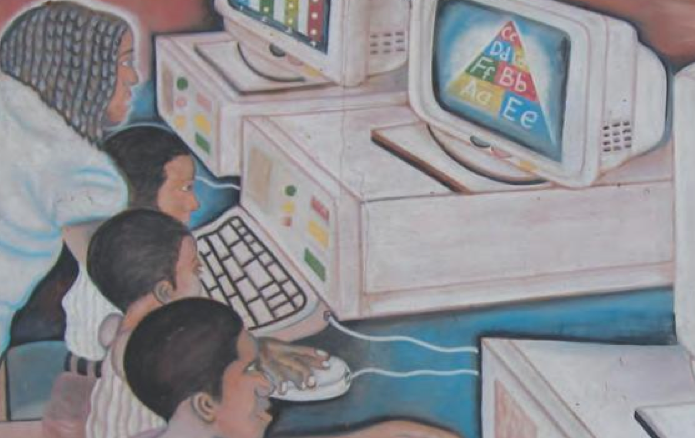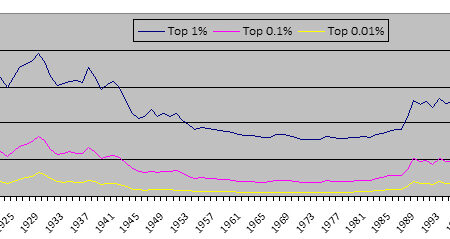According to the Broadband Commission’s 2013 report, only 7% of households in Africa have Internet access, compared to Europe’s 77% and the Americas’ 61%. Yet what interests UC Berkeley Associate Professor Jenna Burrell in her book Invisible Users: Youth in the Internet Cafés of Urban Ghana (MIT Press 2012) is what these statistics about Internet access overlook: the messy spaces between access and non-access, between users and non-users.
Burrell’s interest stems from her experience as an Application Concept Developer in the People and Practices Research Group at Intel Corporation, where she combined technical work and ethnographic research to help the company expand global PC and Internet access.
Upon returning to academics, Burrell sustained her focus on access to technology, but expanded her questions to include the more tangled issues of technology and political economy. Her work fills a void between scholarship on global inequalities in the digital age and localized cultural accounts about how technologies are adopted.
Much of the dialogue about the need to globalize Internet access focuses on the divide between the Global North and the Global South and the marginality that has resulted from colonial and post-colonial legacies. But in Invisible Users, Burrell focuses on the Internet café usage of non-elite, urban youth in Accra, Ghana, and shows that the marginality of these non-elite, urban users does not exclude them from global connectivity.
Instead, being marginal has led these youth to spend as much time in Internet cafés as they can afford on websites like plentyoffiish.com and in chat rooms, where they attempt to create bonds with foreigners on other continents, often through phishing and other online scams. As the book description explains, “Burrell describes the material space of the urban Internet café and the virtual space of push and pull between young Ghanaians and the foreigners they encounter online; the region’s famous 419 scam strategies and the rumors of ‘big gains’ that fuel them; the influential role of churches and theories about how the supernatural operates through the network; and development rhetoric about digital technologies and the future viability of African Internet cafés in the region.”
Being “invisible users,” these Ghanaian youths are excluded from power but are empowered, in part because they are reachable through western regulatory systems. Sitting on second-hand computers “where the more erratic processes of globalization are operative,” these youth attempt to build relationships with foreign others in North America or Europe in the space of Internet cafés to try to gain access to international travel and to circumvent their own social immobility. It is through these practices, which often fail at attaining the hoped-for goal of securing financial support from elsewhere, that these youth attempt to gain access to avenues of bettering their lives that are not available to them through any other means.

The Ghanaian youth Burrell interviewed often spoke of being stuck in pre-adulthood and being unable to get to a position of security with “employment, marriage, and the ownership of property and modern goods” like cars and electronics. Many of these young Ghanaians see the Internet as a tool to “escape the poverty cycle.”
The African continent is often represented as a technological “blank slate,” most often by development agencies trying to attract projects to bring technology and Internet access to the population at large. Consider Google’s attempts to extend access to internet in Sub-Saharan Africa with initiatives like its Project Link in Uganda.
In this discourse, technology itself is seen as the key to solving all the problems facing the continent (and Africa is almost always represented as a continent, rather than as regions or individual countries. But accounts like Professor Burrell’s show us how technology does not come to the ground fully formed, but creates new worlds for those who use it, and that those new worlds are already being formed in spaces previously thought to be excluded from global connectivity.
These new worlds for Ghanaian youth come in many different forms. Internet café use in Accra not only creates certain forms of sociality online but also configures ways that young people can avoid constant surveillance by their elders and create social cohesion among their peer group. Together, these young men and women are able to articulate frustrations about the lack of opportunities in their own society and brainstorm together techniques for finding access to possibilities elsewhere.
In this space, these young people are forced to contend with the representations that exist of themselves, as well as their own perceptions. As one young man told her, “if you are not in Africa all the pictures you see in Africa are diseases.” Drawn into the forces of globalization on this individual level, these Internet users are forced to contend with the representations of Africans as needy, and certain users employ these stereotypes in strategic ways to get monetary support from foreign others. It is here that utopian dreams that the Internet will create the “opportunity for cross-cultural exchange and understanding and for true partnership” are thwarted.



